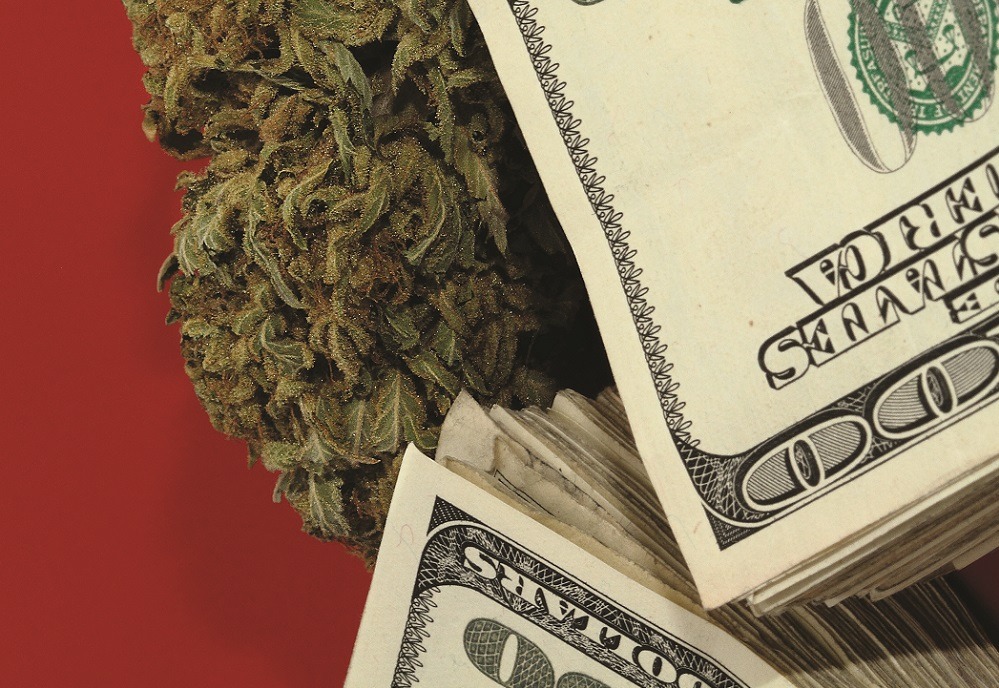While the marijuana industry is flourishing with technological advances and increasing acceptance from mainstream America, it continues to be plagued by the lack of banking services
By Alexandra Harrell
A significant hurdle alienates the burgeoning industry in an increasingly credit-based society. The image of people carrying bulging suitcases stuffed with money and a trail of escaped hundred dollar bills fluttering behind them isn’t limited to mafia movies and pop-culture representations of bank heists. It’s the harsh reality for thousands of marijuana entrepreneurs.
Businesses will keep using elaborate banking workarounds, such as perfuming their cash to avoid suspicion and paying bills with money orders, until legislative changes clear the path for traditional banking.
A few companies have tried and failed to become the first credit union specifically for the cannabis industry.
“They weren’t approved because somewhere down the line, the bank or financial institute has to be connected to the Federal Reserve,” lawyer and business advisor Lee Epstein, of CannaServe, says. “Otherwise they’d have no way of trading cash in. If you have an account with the bank, you have an account with the Federal Reserve, because they can’t hold all that money. The cash is transferred to the closest Federal Reserve office. The bank then becomes the target, and they don’t want to make themselves targets, because federally, they’re dealing with an illegal product and that would be committing a crime.”
Even in states where marijuana is legal, banks could still be at risk of money laundering charges by accepting deposits related to a federally illegal activity.
But not everyone sees the positive aspects of allowing marijuana money into national banks. Roger Morgan, founder of the Take Back America Campaign and author of “Marijuana: Brain Damage. Birth Defects. Addiction,” has been fighting against legalization for more than 20 years.
“At this point it doesn’t matter if it’s America or Mexico or what have you, if we legalize this business, the marijuana use will increase dramatically,” Morgan says.
In his most recent endeavor, he opposes legislation that would allow marijuana money to be accepted by banks. Morgan’s argument smacks of “reefer madness” by drawing a correlation between marijuana use and mass murderers.
“We’re fighting for the survival of mankind,” he says.
While steadily becoming the minority, opinions like Morgan’s have fueled the War on Drugs for decades.
According to Harvard University economist Jeffery Miron’s 2010 study, marijuana prohibition costs state and federal governments $17.4 billion every year.
So what’s the alternative?
Eventually, Epstein says, the federal government is going to have to reschedule cannabis, or better yet, remove it completely from the Controlled Substances Act schedule.
Regarding the medicinal value of marijuana, Epstein says, “How long is the federal government going to be able to deny it?”

